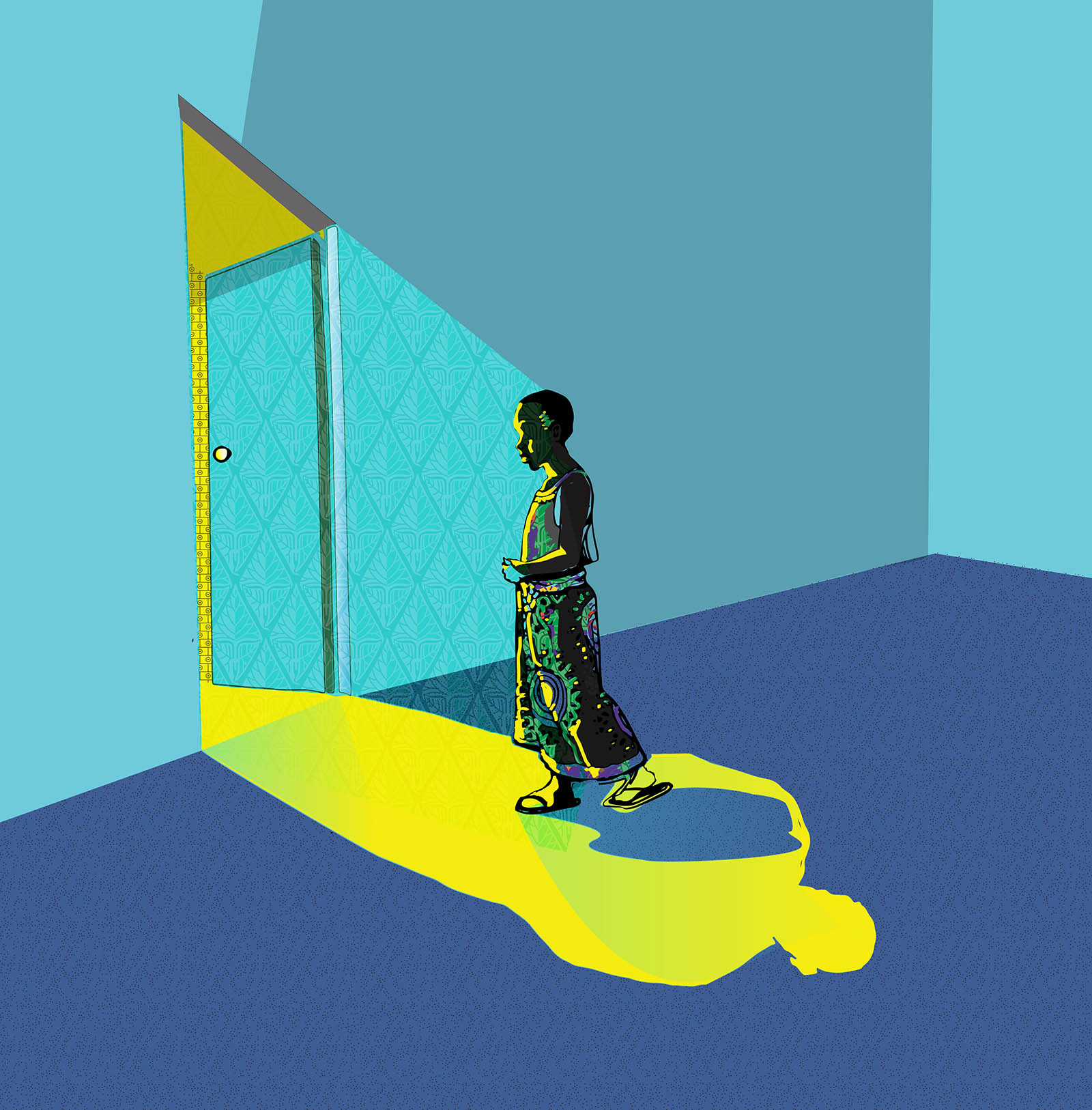When someone searches for something like 'who sexually abused Mikayla,' it often points to a deep concern, perhaps a desire to grasp the full scope of a difficult situation or to find support for someone affected. It is a very serious matter, and our hearts go out to anyone facing such hardship. Sexual well-being, you see, is a fundamental part of our overall health, just like our physical or mental state. It truly shapes how we feel, how we connect with others, and how we care for ourselves, you know?
This kind of search, it really highlights the need for open conversations about sexual health and the challenges people might experience. It is about making sure we all have access to clear, helpful information. We want to shed some light on the broader picture of sexual health, drawing from what we know about how our bodies work and how infections can spread. Understanding these basics is a big step towards protecting ourselves and helping others too, more or less.
So, we are going to explore some key aspects of sexual health, using general information about infections and well-being. This will give us a helpful framework for thinking about the impacts of various experiences on a person’s health. We are aiming to provide some useful insights, without getting into any specific personal stories or details, because, as a matter of fact, our focus is on general health knowledge.
Table of Contents
- Understanding Sexual Health Basics
- The Importance of Sexual Health for Everyone
- Diagnosis and Care in Sexual Health
- Maintaining Sexual Well-being
- Frequently Asked Questions About Sexual Health
- Final Thoughts on Sexual Health and Care
Understanding Sexual Health Basics
Sexual health, it is a rather broad topic, much more than just avoiding illness. It is about a state of physical, mental, and social well-being in relation to sexuality. This includes having a respectful approach to sexual relationships and the ability to have pleasurable and safe sexual experiences, free from coercion, discrimination, and violence. You see, it is a big piece of our overall health picture, really.
When we talk about sexual health, we often touch on sexually transmitted infections, or STIs, and sexually transmitted diseases, which are STDs. These are caused by different kinds of tiny organisms, like bacteria, viruses, or parasites. They usually spread from one person to another through sexual contact. It is a simple fact of how some infections work, you know?
Knowing about these infections, how they are passed along, and what they can do is a pretty important part of being sexually healthy. It helps us make good choices and protect ourselves and others. This knowledge helps us understand the wider context of sexual health, including how challenging experiences can affect it, too.
What Are STIs and How Do They Spread?
STIs are infections that primarily spread through sexual contact. This contact can involve genitals or various bodily fluids. They are also sometimes called STDs or venereal diseases, but STI is a more common term these days, apparently. The way these infections move from person to person is mainly through intimate physical contact, which means skin-to-skin contact or the exchange of fluids during sexual activity.
The tiny culprits behind STIs can be bacteria, viruses, or parasites. For instance, some common bacterial STIs include gonorrhea and chlamydia. Viral STIs, like herpes or HIV, are also a big concern. Then there are parasitic ones, such as pubic lice, sometimes called crabs, which are an itchy nuisance but, thankfully, treatable. Each type has its own way of spreading and its own set of potential effects on the body, so.
It is important to remember that not all sexual contact leads to an STI, but any sexual contact carries some level of risk. That is why understanding the different ways these infections are transmitted is a really vital step in preventing them. Knowing this helps us take precautions and be mindful of our sexual well-being, just a little.
Common STIs and Their Impact
There are quite a few common STIs, and each one can have different effects on a person’s health. For example, some infections, like gonorrhea, can cause symptoms like pain or discharge, but sometimes they do not show any obvious signs at all. This makes them a bit tricky, because someone could have an infection and not even know it, which could lead to unknowingly passing it on, too.
Hepatitis C, for instance, is a viral infection that primarily spreads through exposure to blood containing the virus. While often associated with blood contact, it is worth noting that some infections can also be transmitted sexually. Other infections, like Zika, which is more commonly known for mosquito transmission, can also spread through sexual contact, which is a bit of a surprise to some people, you know?
The impact of STIs can range from mild discomfort to very serious health problems if left untreated. Some can cause long-term pain, infertility, or even increase the risk of other infections. This is why getting diagnosed and treated promptly is so very important for keeping healthy. It is about taking care of yourself, and that includes your sexual health, apparently.
The Importance of Sexual Health for Everyone
Sexual health is truly as important as physical, mental, and spiritual health. It is not just about the absence of disease; it is about a positive and respectful approach to sexuality and sexual relationships. Being sexually healthy allows for a whole range of positive experiences, including the ability to communicate openly about sex, to make informed decisions, and to experience pleasure and intimacy in a safe way. It is a big piece of living a full life, really.
When someone experiences something that disrupts their sexual well-being, like non-consensual sexual contact, it can have profound and lasting effects on all these aspects of health. It is not just the immediate physical risks, like STIs, but also the emotional and psychological toll that can be very heavy. This is why having a broad consideration of sexuality is so important, as it underlies many behaviors and outcomes related to sexual health, you see.
Public health efforts around STIs and sexual health aim to support everyone in achieving and maintaining their sexual well-being. This involves providing education, access to testing and treatment, and creating environments where people feel safe discussing their sexual health concerns. It is about building a supportive community for everyone, in a way.
Sexual Health Beyond Infection
Sexual health really goes beyond just preventing or treating infections. It covers a wide range of services and considerations. This includes things like access to contraception, which helps people plan their families, and care for fertility or infertility issues, too. It also involves maternal and perinatal health, ensuring that pregnant individuals and new parents get the care they need, which is pretty vital.
It is about recognizing that sexuality is a fundamental part of being human. This means that sexual health cannot really be defined or fully understood without looking at sexuality as a whole. It influences our behaviors, our relationships, and our overall quality of life. Thinking about it this way helps us see the bigger picture of what it means to be sexually healthy, you know?
Also, sexual health includes addressing things like compulsive sexual behavior, which might involve various enjoyable sexual experiences, but when it becomes compulsive, it can impact a person’s life negatively. Examples might include masturbation or sexual arousal using a computer, but the key is when these behaviors become difficult to control. So, it is about balance and well-being in all areas, more or less.
Special Considerations for Pregnant Women
STDs and STIs are of particular concern for pregnant women, and this is a really important point. Some infections can be passed from the pregnant person to the baby during pregnancy or at birth, which can cause serious health problems for the newborn. For example, infections like gonorrhea can be quite risky for both the mother and the baby. This is why screening and early treatment are so very important during pregnancy, you know?
For instance, some infections, like Zika, can have severe consequences for a developing fetus if the pregnant person contracts it. Others, like gonorrhea, can cause eye infections in newborns or even more serious issues if not treated promptly. This is why healthcare providers usually recommend routine STI screenings as part of prenatal care, just a little.
Ensuring sexual and reproductive health for pregnant women is a big part of maternal and perinatal health services. These services aim to prevent adverse outcomes for both the mother and the baby. It is about protecting the health of the most vulnerable among us, and that is a pretty big deal, you see.
Diagnosis and Care in Sexual Health
Getting a diagnosis for an STI usually starts with a conversation about your sexual history and any current symptoms you might be experiencing. It is about being open and honest with your healthcare professional so they can get a good idea of what might be going on. They might ask about recent sexual partners or any unusual feelings or changes you have noticed, apparently.
If your history and symptoms suggest that you might have an STI, your healthcare professional will likely do a physical or pelvic exam. This exam helps them look for any visible signs of infection, like rashes, sores, or discharge. They might also take samples, like blood or urine, or swabs from affected areas, to send to a lab for testing. This helps confirm the diagnosis and identify the specific infection, so.
Early diagnosis and treatment are pretty vital for preventing serious health complications and stopping the spread of infections. It is about catching things early so they can be managed effectively. Taking that step to get checked out is a really responsible thing to do for your own health and for the health of others, you



Detail Author:
- Name : Madeline Ritchie MD
- Username : harmon.christiansen
- Email : fritsch.isabel@gmail.com
- Birthdate : 1982-05-08
- Address : 403 Jacky Summit Apt. 586 Hughview, AK 61365-6875
- Phone : 878.332.9998
- Company : Vandervort LLC
- Job : Forensic Investigator
- Bio : Illum tempore accusantium similique ut quaerat accusamus. Dolorem et voluptas quia aspernatur. Dolorem quia repellendus iste ipsa est totam. Porro dolorem vel reprehenderit veritatis rerum.
Socials
tiktok:
- url : https://tiktok.com/@ana_hegmann
- username : ana_hegmann
- bio : Culpa iste quia qui eveniet vel. Reprehenderit vitae doloribus quas laborum.
- followers : 2815
- following : 1618
twitter:
- url : https://twitter.com/ana_dev
- username : ana_dev
- bio : Natus assumenda non necessitatibus libero. Molestias temporibus consequuntur consequatur rem.
- followers : 4432
- following : 478
instagram:
- url : https://instagram.com/ana_hegmann
- username : ana_hegmann
- bio : Nobis ipsam eos id non officiis iure. Est ad porro illum incidunt sed est.
- followers : 1862
- following : 2869
linkedin:
- url : https://linkedin.com/in/hegmanna
- username : hegmanna
- bio : Aspernatur amet quis incidunt magni odit quia.
- followers : 6915
- following : 1908



























